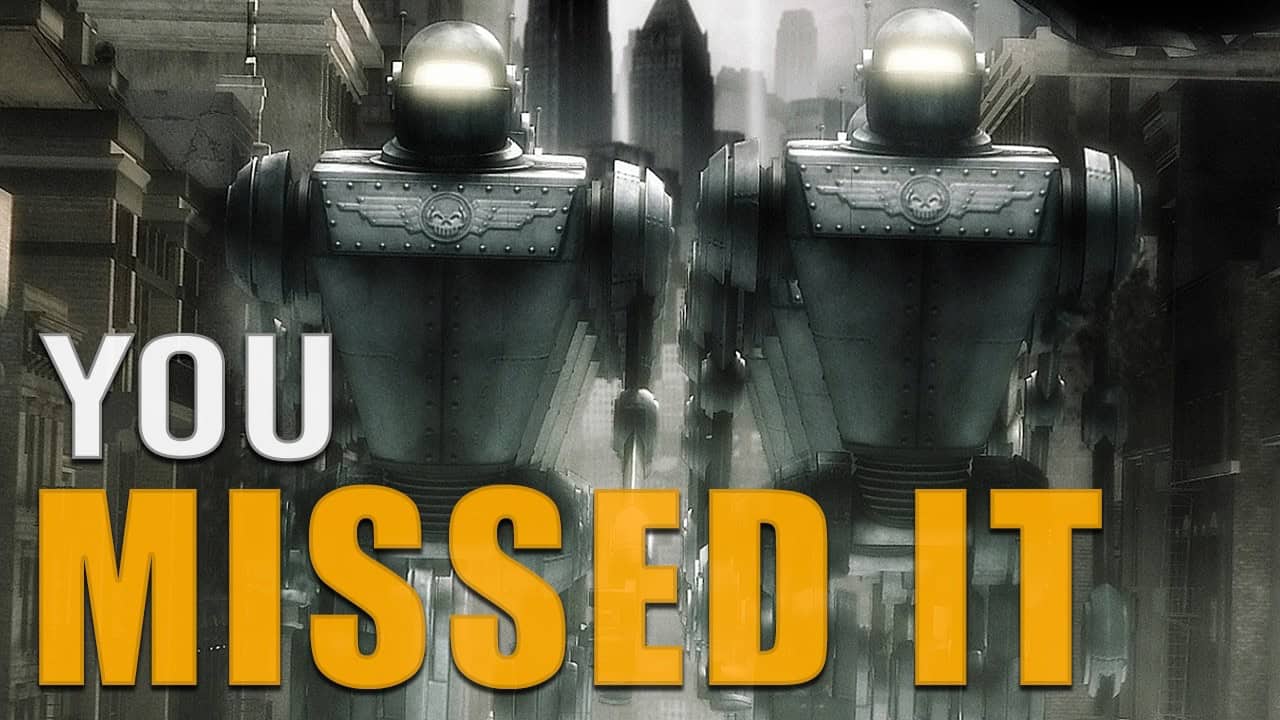By Joshua Tyler
| Published
Sky Captain and the World of Tomorrow (2004)

We’re kicking this exploration of overlooked sci-fi off with, appropriately, a movie marketed almost entirely with giant robots, Sky Captain and the World of Tomorrow.
It begins with those giant robots attacking 1939 New York and the story follows Sky Captain, played by Jude Law, as he leads a team of ace hot shots in investigating the disappearance of a missing scientist in the movie’s throwback retro-future world.
It’s heavily stylized, too heavily stylized for audience of the time, but that’s also part of its charm. It goes a little too over the top with CGI and the use of soft-focus lenses, but Sky Captain and the World of Tomorrow is a fun, family friendly action sci-fi film that fits comfortably into a Sunday afternoon double feature with the likes of classic past Disney efforts like Swiss Family Robinson.
The Butterfly Effect (2004)
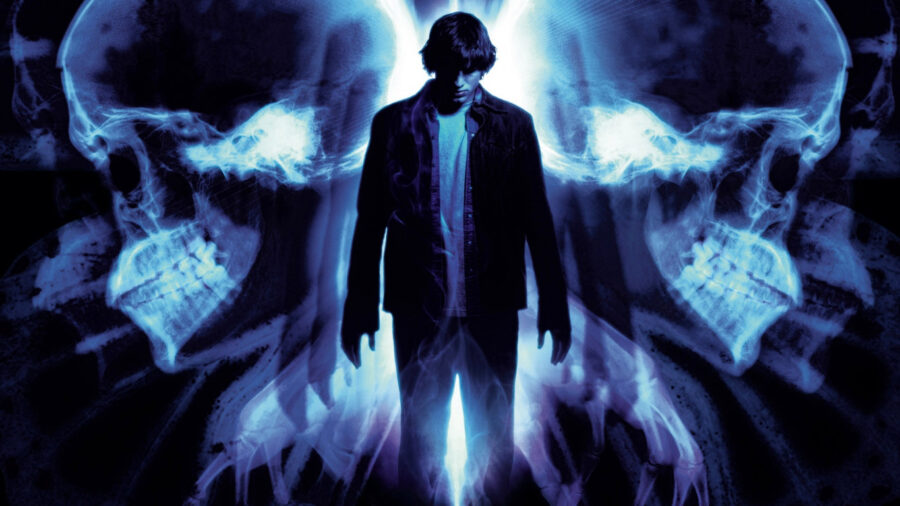
These days if Ashton Kutcher is remembered at all, its as a tabloid personality, but back in 2004 he seemed well on his way to becoming a big, box office draw. And his best movie is, without question, The Butterfly Effect.
He plays a college student who experiences blackouts during periods of extreme stress.
A psychologist recommends he start keeping a detailed journal of his life, to help him deal with his inexplicable memory loss.
Years later, Evan starts rereading his journals, hoping to jar loose those old memories that have remained hidden from him. It is then that he discovers that by doing so, he can travel through time to focal points in his life, and potentially change them.
The Butterfly Effect uses the dark history of its lead character as a jumping point to build an entire life, and does a fantastic job of showing how little changes can have sickening consequences for yourself and others.
It’s one of the better time travel movies of the past few decades and it never gets any respect.
The Island (2005)
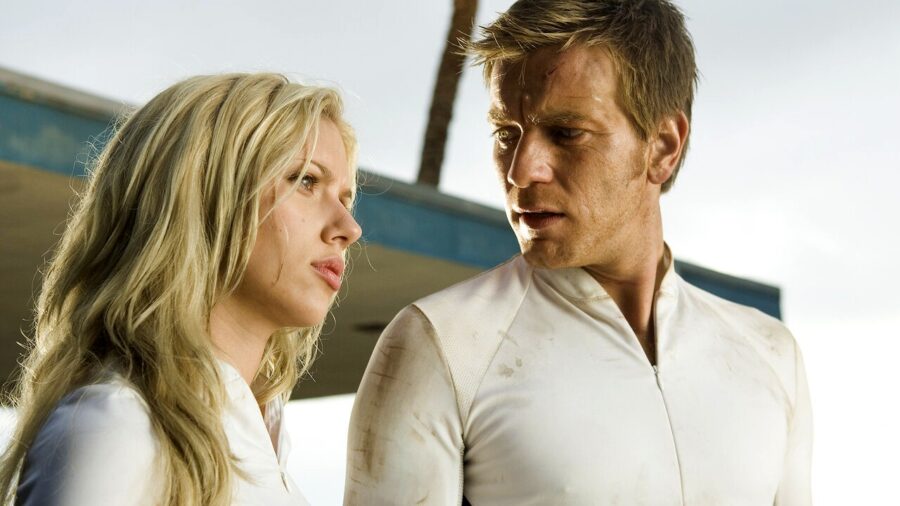
Upon its release in 2005, The Island was trashed, first and foremost, because it was a Michael Bay movie. And while the movie suffers from some of Bay’s usual excesses, it’s more restrained and well-structured than the Transformer style messes he’s best known for.
Ewan McGregor plays Lincoln Six Echo, who we are told is one of the few remaining human survivors of some sort of global holocaust.
His best friend is Jordan Two Delta, played by Scarlett Johansson, a woman whom he cannot touch due to heavily enforced proximity restrictions.
The Island tells us from the outset that the naïve Lincoln Six Echo’s world is an utter falsehood, the fun is in watching him discover it, and subsequently escape from it. It soon becomes a wild, energetic chase movie set in a future said to be somewhere around 2050.
Go in with limited expectations and expect to spend time watching Michael Bay blow things up to the tune of a solid enough sci-fi plot. When it comes to fun, The Island delivers.
V For Vendetta (2006)
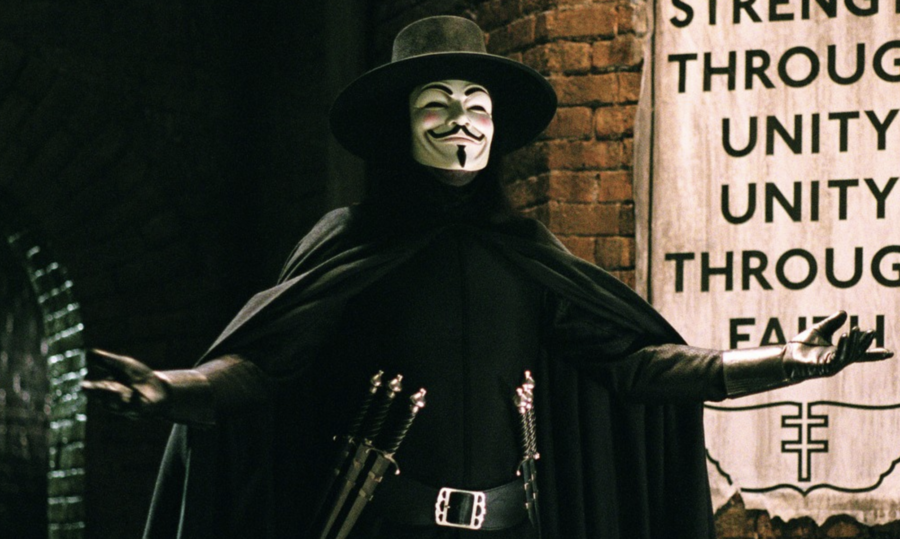
V for Vendetta is an idea. A subversive, uncompromising, sometimes naïve, idea.
Based on the same-named comic series written in 1982 by Alan Moore and David Lloyd, V for Vendetta tells the tale of a near-future England run by an oppressive government and a man, known only as V (Hugo Weaving), who sets out to destroy it.
The Wachowski brothers’ script is an absolutely faithful adaptation of its source material, tweaked just enough to update it and properly translate it to the screen.
Hugo Weaving is incredible as V, acting underneath a stiff, somewhat silly mask that completely covers his face, his eyes, or anything else he might use to convey the slightest emotion. Yet somehow, V is the film’s most passionate, powerful character.
But it’s Natalie Portman’s Evey that becomes the real heart of the movie. V is an unstoppable force; Evey is a real person, caught up in his deadly rebellion.
V calls himself an idea, and with Weaving playing him he’s a very powerful idea indeed.
The Fountain (2006)

Some movies bomb because they’re bad, others because they’re badly advertised. The Fountain failed because it flew right over audience’s heads.
Too smart for popcorn seeking pleasure seekers, auteur director Darren Aronofsky proved to be a love it or hate it affair. Critics either lauded it as one of the greatest films of all time or stood around confused and unable to process what they’d been watching.
The Fountain then opened over Thanksgiving in 2006 against crushing competition like Casino Royale and Happy Feet. It was doomed from the start.
The movie is intentionally obtuse, and part of its genius is that every person who sees it will take away something different from it.
My interpretation is that it takes place both in the past, present, and future all at once. It follows a man, played by Hugh Jackman, who finds the secret of immortality and sets out to resurrect his wife.
But that’s just my interpretation. There are others. You’ll have your own. Watch The Fountain and share it with us.
Knowing (2009)

Knowing was not a box office flop, though you’d never KNOW it from the way the movie’s remembered now.
The 2009 movie starred Nic Cage as an MIT professor who discovers a mysterious list of numbers buried in a time capsule.
The numbers accurately predict every major disaster over the past 50 years—and indicate future catastrophic events. As Koestler races to stop the impending doom, he uncovers a deeper, possibly supernatural or alien explanation tied to humanity’s fate.
It received mixed reviews, and that reaction pretty much ended the big budget blockbuster directing career of Alex Proyas, a filmmaker previously heralded as a sci-fi genius for his work on movies like The Crow and Dark City.
Of all his movies, Proyas had the most control over Knowing, which is perhaps why its tepid reception damaged his career so significantly. His genius shines through in the final product, and Knowing is much better than it’s remembered as, making it well worth streaming if you’ve not previously given it a chance.
Children of Men (2006)
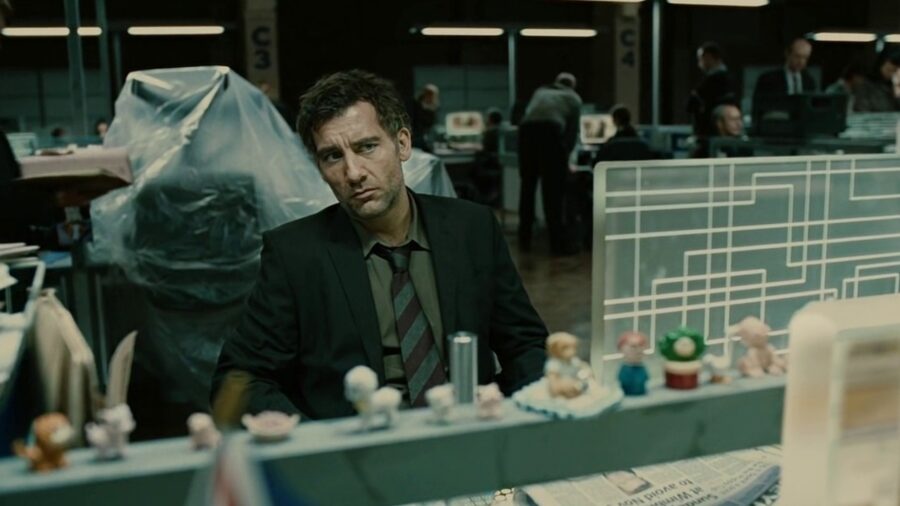
Fresh off directing the third Harry Potter movie, filmmaker Alfonso Cuaron received critical acclaim for his 2006 sci-fi movie Children of Men, but the movie had only very modest box office results and it has since vanished from the conversation.
It takes place in the early 21st century, a time when women have stopped having babies. It basically describes our actual, current future if the modern birth rate continues to plummet.
As it is now, no one knows why; they just stopped. It’s now 2027, science is powerless, governments are in shambles, and society has dissolved into complete anarchy.
The suddenly wholly infertile human race will die out in the next sixty or seventy years.
Cuaron’s film takes a depressed and somber tone right from the outset. The human race has no hope, and mankind lumbers through the streets engaged in the business of daily living knowing that soon it’ll all be dust.
Clive Owen plays a man living life without hope or direction, just going through the motions as humanity winds down. That changes when he stumbles across a pregnant woman and ends up on the run, trying to protect her as both governments and terrorists pursue them.
Despite that, Cuaron refuses to let this turn into a post-apocalyptic rehash of The Fugitive. Instead, the film is more interested in exploring the consequences of a future in which man is done for, and conversely, the effect hope can have on hopelessness.
